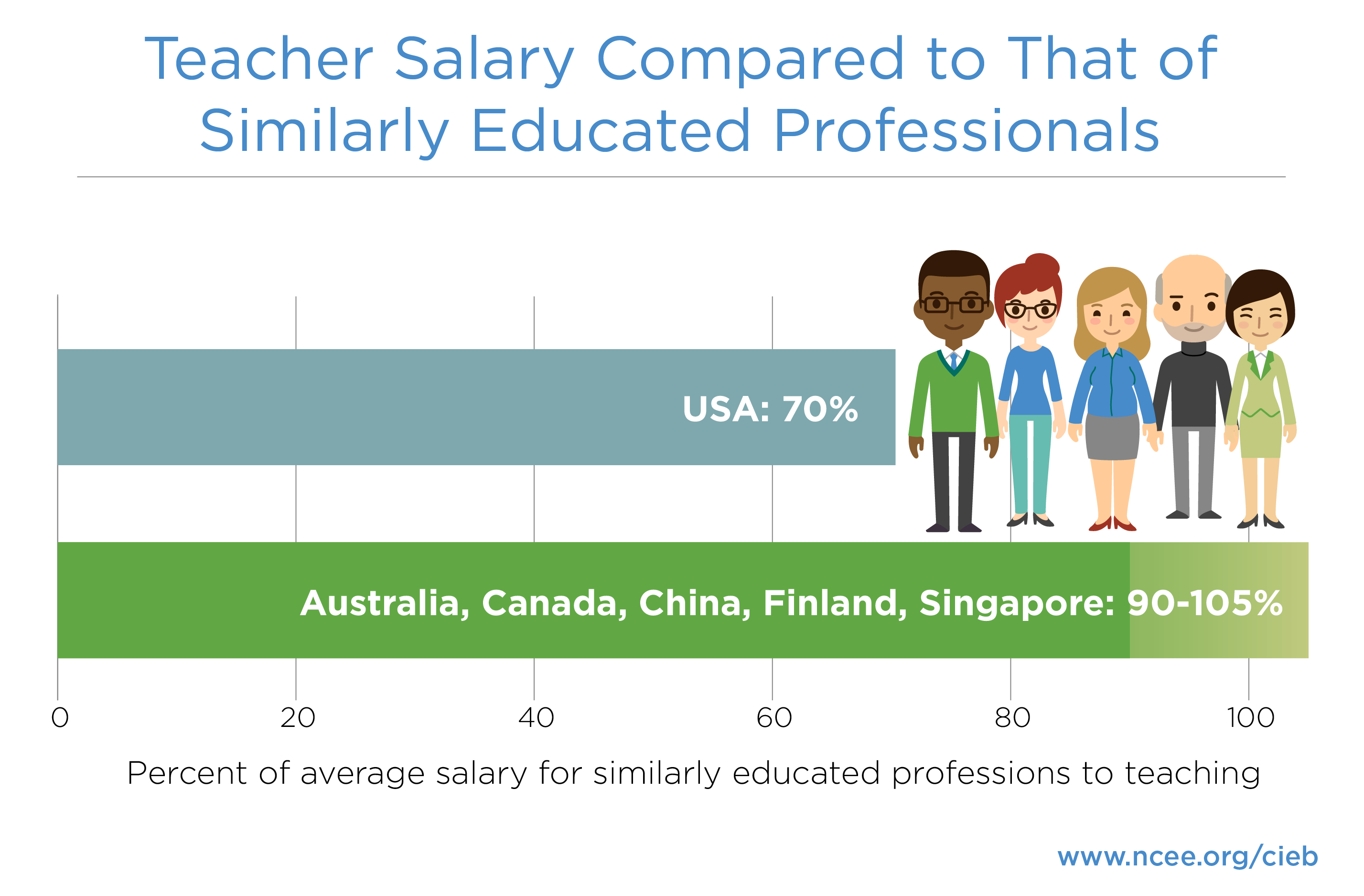
By Nathan Driskell
A new report from the National Council on Teacher Quality (NCTQ) finds that professions that require similar education and credentials as teaching pay about 40 percent more, on average, than teaching. In other words, teachers only make 70 percent as much as similarly educated professionals. This finding suggests that the prospects for attracting and retaining a diverse and qualified teaching force are slim. The NCTQ report, Smart Money 2.0, analyzed salaries in over 100 school districts across the United States.
High-performing education systems pay teachers very differently. NCEE’s landmark report Empowered Educators shows how in Australia, Canada, Finland, Shanghai, and Singapore, teacher salaries essentially match the average for college graduates in comparable professions (90–105 percent of the average). Many jurisdictions require the Ministry of Education to benchmark the salaries of similarly educated professions—such as registered nurses, civil engineers, or certified accountants—and match teachers’ salaries accordingly.
Rethinking teacher pay so that it is competitive with similarly educated professions is an important step for districts and states to take to attract and retain a world-class teaching force. But it is by no means the only feature of a high-performing teacher development system. For more about how other systems support teachers, reward the development of their expertise, and organize schools so teachers can support one another, see NCEE’s Blueprint.
Correction: NCTQ is the National Council on Teacher Quality. This article previously referred to NCTQ as the National Center on Teacher Quality; we have corrected this error.




